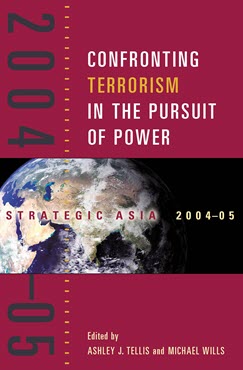United States
Leadership Maintained Amid Continuing Challenges
Although the improvement in U.S. relations with most Asian powers, and dominant U.S. military and economic power, encourage cautious optimism about continued U.S. leadership in Asia, U.S. policy toward Asia, may remain largely reactive, unable to develop fully coherent and comprehensive approaches to this dynamic region.
The war on terrorism expanded U.S. influence in Asia, although perceived U.S. unilateralism over Iraq was strongly criticized. Asian governments and people remained wary of the association of anti-U.S. regimes in Iraq, Iran, and North Korea with the war on terrorism. However, Iraq was a secondary concern to most Asian governments. Many gave higher priority to problems on the Korean Peninsula and supported the Bush administration’s consultative approach in the six-party talks aimed at resolving the crisis there. The U.S. stance on Taiwan also pleased them, even China. The improvement in U.S. relations with most Asian powers, and dominant U.S. military and economic power, encourage cautious optimism about continued U.S. leadership in Asia, despite U.S. preoccupation with crises and unfinished missions in Iraq, Afghanistan, and Korea. On the other hand, U.S. policy toward Asia, whether under a Democratic or Republican president, may remain largely reactive, unable to develop fully coherent and comprehensive approaches to this dynamic region.
Strategic Asia
The Strategic Asia annual edited volume incorporates assessments of economic, political, and military trends and focuses on the strategies that drive policy in the region. Learn more about Strategic Asia.


